top 6 tips for glowing skin this spring
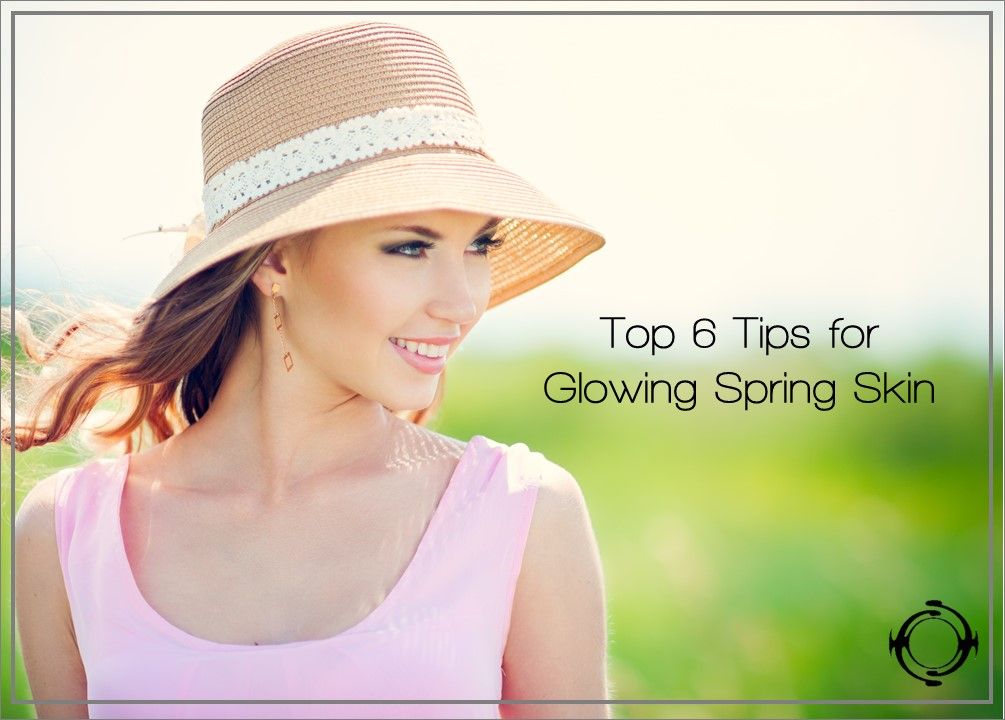
The long, dark nights of Winter are disappearing, little buds are poking their heads through the soil, the birds sing their sweet dawn chorus every morning, and the sun shines a little longer every day... yep... Spring is breaking through.
Before long we'll gradually be shedding our layers, one by one, as we invite the warmth of the sun back onto our skin. But is your skin ready for this blossoming season?
Follow my top tips below and you'll be ready to enjoy this beautiful season of re-awakening.

Tip 1: Spring Clean Your Bathroom Cabinet
You might be wondering what on earth spring cleaning has to do with your skin but making spring-cleaning your bathroom cabinet and annual event can ensure the skincare and beauty products you're use remain safe for, and effective on, your skin.
It is important to periodically purge our skincare and beauty products because products that are older than their best before date (BBE) can lose their effectiveness and can actually carry bacteria which could cause skin infections.
In some cases the active ingredients may become even stronger and this could lead to skin irritation, whereas other ingredients may degenerate and cause rashes and other skin problems.
Here are some ways to determine which products you should discard:
-
are older than their Best Before or expiration date
- look different, either in consistency or colour, and/or smell different
- have developed a crust
- have become dry
- have a Sun Protection Factor (SPF) and you have had them for over a year.
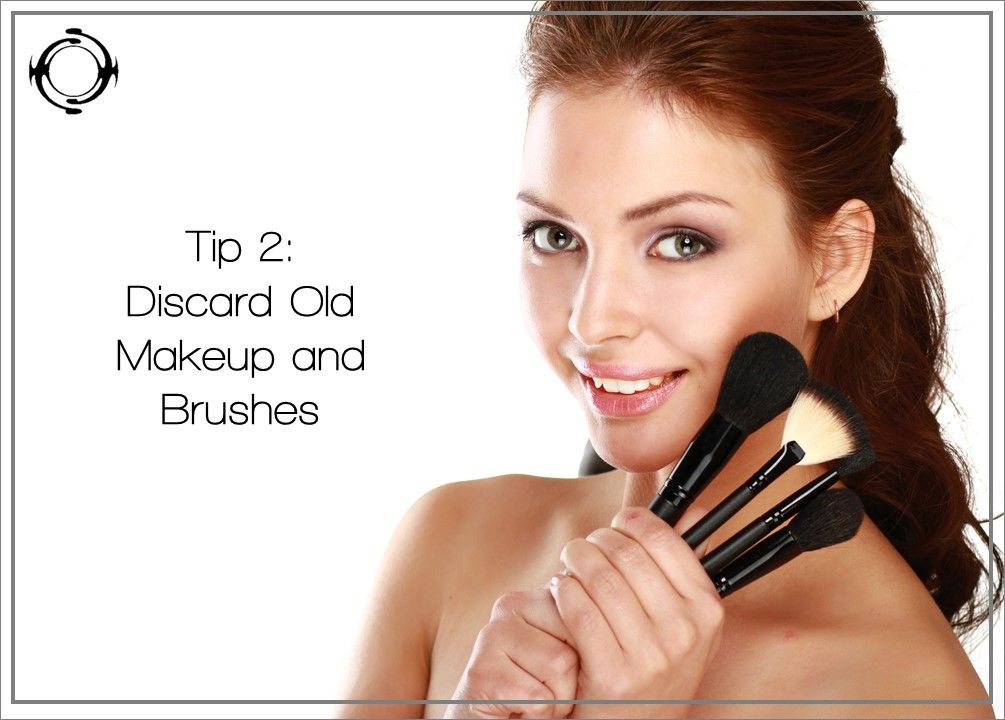
Tip 2: Discard Old Makeup and Brushes
I'm not one to encourage wastage but when it comes to make-up, especially eye make-up, you need to be very vigilant.
We already know not to share any eye makeup (eyeshadow, eyeliner or mascara) or lip products (lipstick, lip butter, and the likes) with friends because they could be carrying an unseen infection that could be passed onto us. And when visiting stores that sell makeup and have testers, again we need to be vigilant.
When it comes to our eyes, they are more prone to infections than our skin and in severe cases, infections can lead to blindness. But what about our own eye makeup? When do we know it's no longer safe to use?
Always respect the BBE (Best Before End) date or open jar symbol on the jar. The BBE date will tell you when you should stop using the product. The open jar symbol tells you how long you can use the product after it's opened for the first time. However with this latter symbol you need to be careful. If you've had a piece of makeup for months/years that you've never opened but it's been subject to environmental changes eg kept in sunlight or damp conditions, then you should check it when you open it for things like discolouration, rancid smell, strange colouring as the conditions it has been kept in may have affected it.
As a general rule:
- Throw out lipstick after 1 year
- Facial products (eg foundation, primer) typically last for up to 24 months after they've been opened
- Blush/Blusher should keep for up to 2 years
- Throw out powder eyeshadow after 2 years and cream eyeshadow after 1 year
- Eye pencils, discard after 1 year of opening
- Eye liners and mascara both have a short life and should be thrown out after every 3-6 months
When it comes to your brushes and applicators, ensure you clean them regularly and replace your sponges every month. If you notice that your makeup brush isn't applying your makeup evenly anymore, or is shedding its bristles, mis-shapen or if the handle is cracked or broken, then replace it.
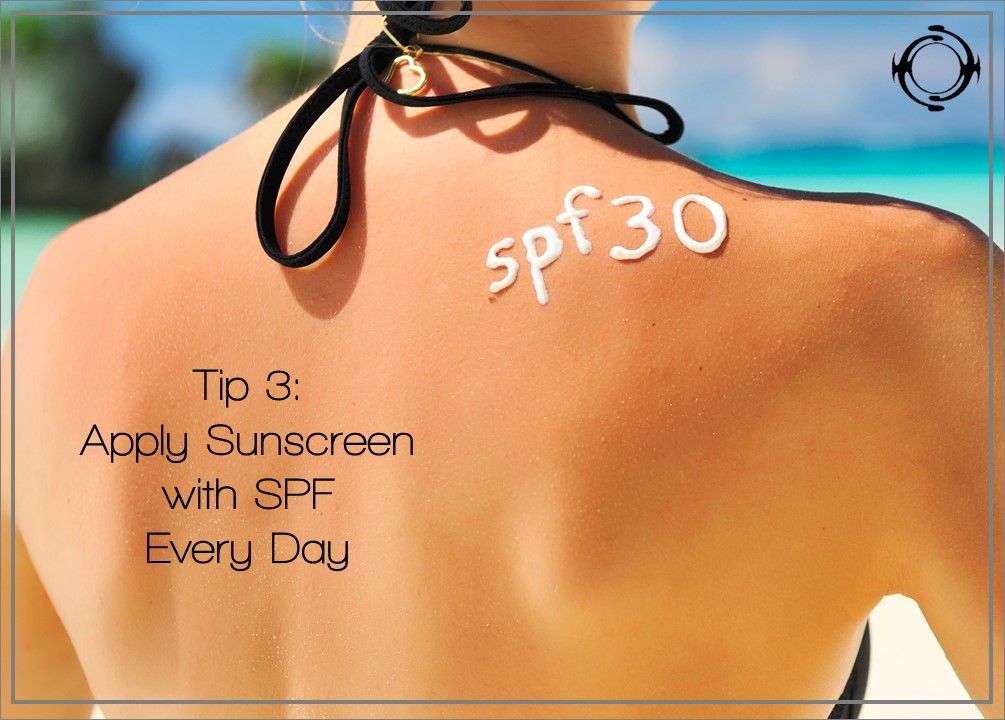
Tip 3: Apply Sunscreen SPF Every Day
Sun Protection Factor (SPF) is a necessity for your skin all year round.
But as the days grow longer and warmer, we begin to shed heavier clothes, expose more skin to the elements, and stay outdoors for longer. So sunscreen and SPF become of greater importance.
It's common knowledge, nowadays, that over-exposure to the sun can lead to the development of skin cancer. This doesn't mean that only sun-worshipers who bathe in the midday sun could contract the disease, it can also impact people who've exposed their skin, without getting it burned, to the sun without protection.
Additionally, exposure to the sun is the #1 cause of premature aging and wrinkles. Even people who don't think they're exposed to the sun directly, e.g. they work indoors or drive a bit for work, still need to protect their skin as the sun can impact it even through windows. And on a cloudy, overcast day, the sun can still penetrate through the clouds.
When choosing a product with SPF, choose one with a protection factor of, at least, 30.
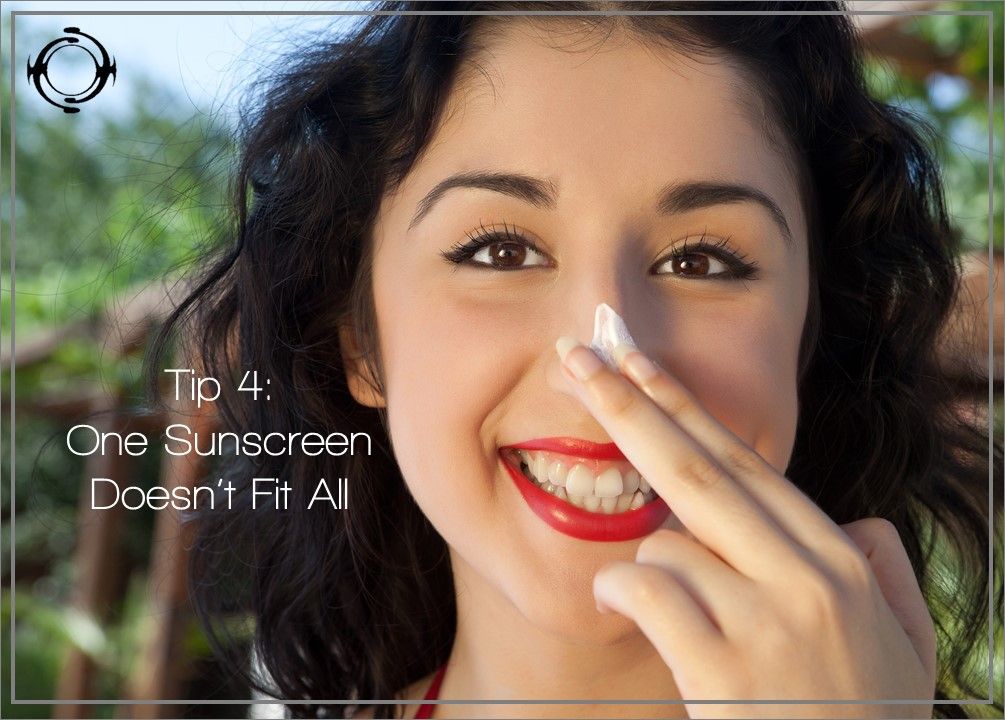
Tip 4: One Sunscreen Doesn't Fit All
When
using sunscreen on your skin, be aware that SPF products that work well
on your body may cause the skin on your face to breakout.
So if you want to avoid breakouts or have acne-prone skin, choose a product that has been formulated especially for
facial skin.
According to
Neelam A. Vashi, MD, FAAD, a dermatologist with Boston Medical Center "
Sunscreen products for the face are often formulated differently than those for the body." Those formulated for the face tend to feel lighted and are more easily absorbed.
Even if you're just walking from your car to the office each morning, by applying a facial moisturiser that contains SPF, you'll help slow down the signs of aging as sun is the #1 cause of premature aging and wrinkles.
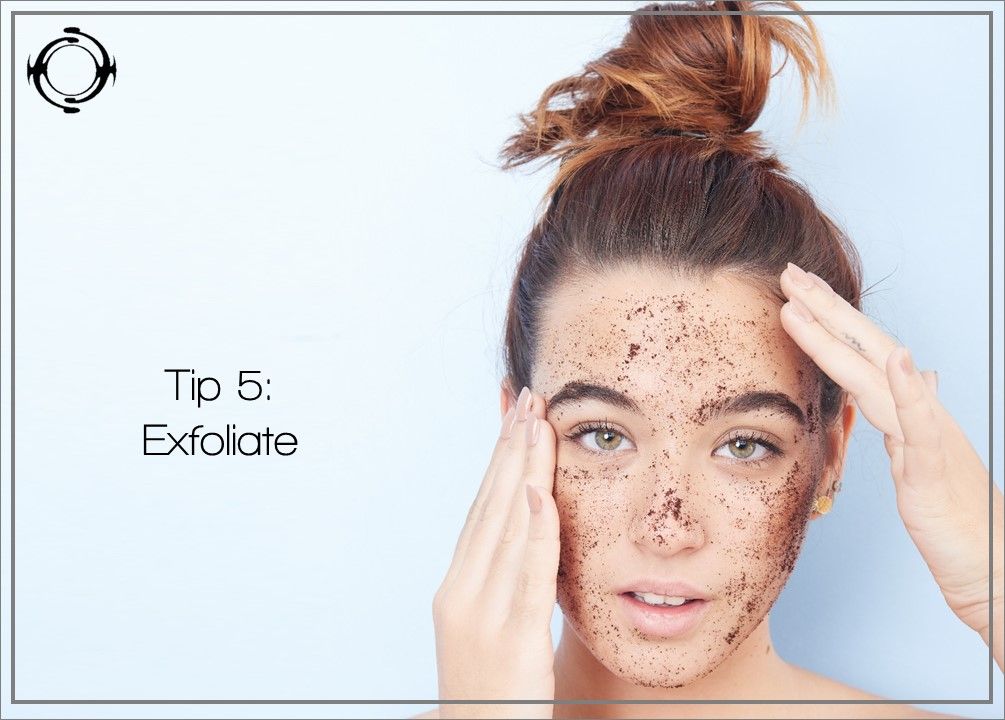
Tip 5: Exfoliate
When it's cold outside and we need to wrap up warm, covering our bodies from top to toe, we tend to neglect the need to exfoliate our skin or we simply forget.
If we haven't been as vigilant as we should have been during the Winter months, in Springtime our skin can look dull and patchy, thanks to the heavier moisturisers we've applied during Winter and the drying effects of central heating.
Gently exfoliating the skin will slough away (or brush off) old dead skin and dirt from the outer skin layers. This will help unclog blocked pores to reveal healthier, new layers of skin underneath.
Similar to sunscreens, when it comes to exfoliating products, one product doesn't fit all.
Your body can handle a stronger exfoliating product, one that contains sugars or salts. But the skin on your face is more tender and we need to treat it more gently. I recommend using an exfoliator that contains more gentle fruit seeds. As a rule of thumb, if the exfoliating product you want to use on your face feels too scrubby, then it's too harsh.
That's your body and face covered, but are there any other areas you should also exfoliate on a weekly basis? Often we forget about our feet and our lips.
When we exfoliate our feet, we remove hard, painful skin and keep the skin on our feet soft. If you have a lot of hard skin on your feet you may find that your feet get tired faster when you go out for a walk or, in general, just feel more painful.
Exfoliating your lips may seem like a gimmick but it's not. Not only is it fun (and often quite tasty.. though you shouldn't really eat the product) but it also keeps your lips healthy and can reduce the chance of developing chapped lips and cold sores.
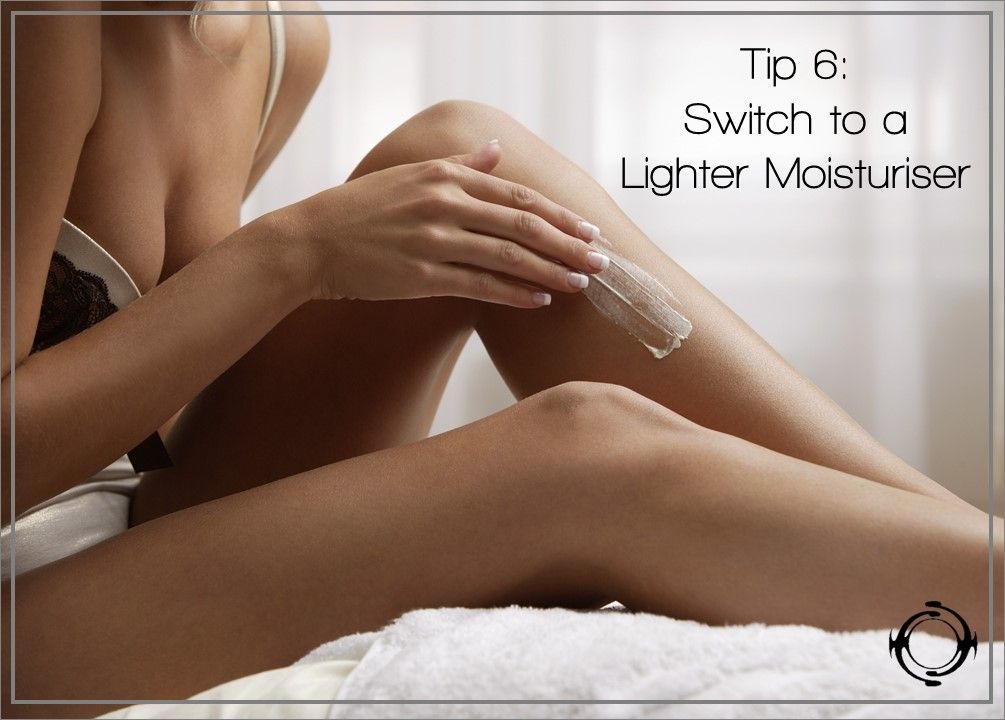
Tip 6: Switch to Lighter Moisturisers
The
cold Winter weather and central heating draws moisture from our skin.
So in this weather it is recommended to use heavy moisturisers such as
Body Butters which, preferably, do not contain any water (look for the
word 'Aqua' on the ingredients label).
But as
the warmer Spring weather arrives, our skin becomes naturally more oily
so it can be beneficial to switch to a lighter moisturiser such as a lotion.
Depending on your skin-type, you can choose between oil-based moisturisers and water-based ones.
If you tend to have oilier skin or notice an increase of oil in your skin during the Spring months, then switch to water-based lotions, which are lighter than oil-based lotions. Water-based lotions should contain up to 80% water (look for 'Aqua' as the first ingredient). The water helps the lotion absorb faster into your skin and makes the product feel lighter on your skin.
If your skin is still a little on the dry side, switch to oil-based lotions. These are slightly heavier than water-based lotions but much lighter than traditional body butters which should contain no water.


